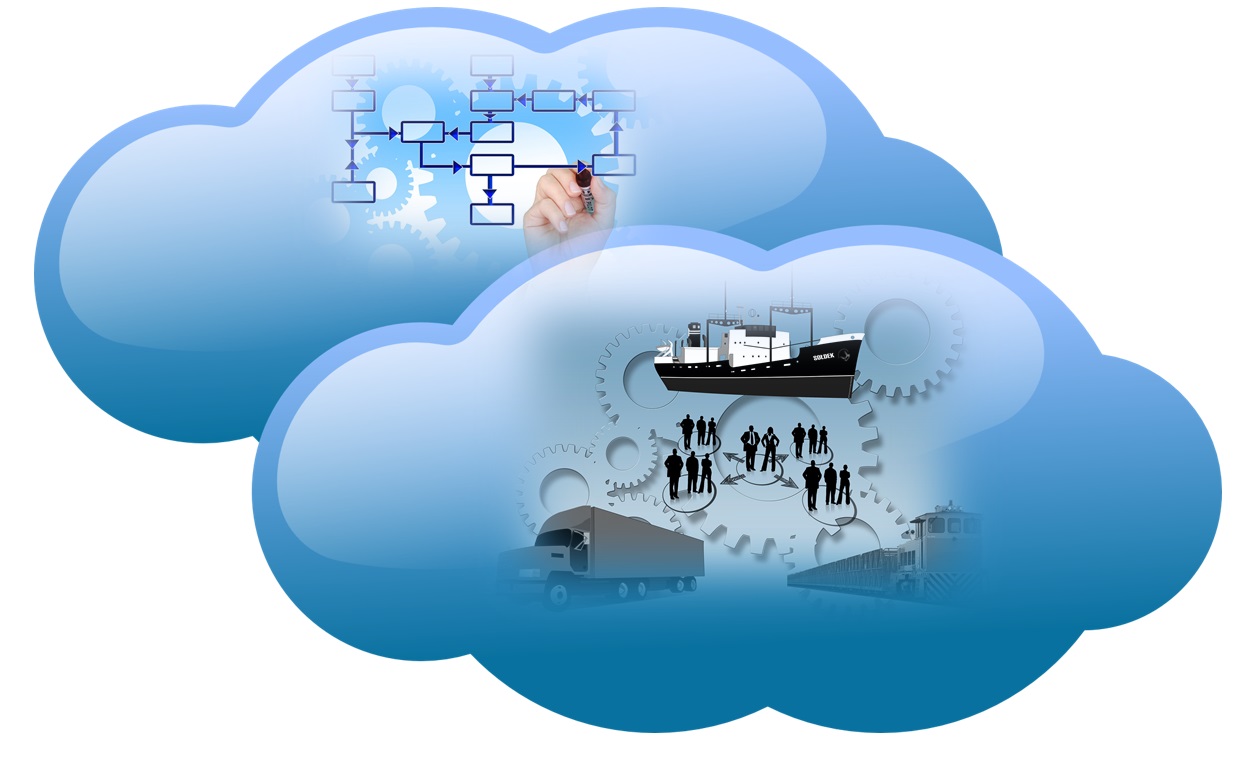Digitisation Technology Trends (2): Cloud logistics

01 March 2019
TouchStar Technology Trends series
Digitisation Technology Trends (2):
Cloud logistics

As more businesses embrace new technology and choose to ‘go
digital’, the increase in data, speed of communications and ability to deploy
real-time analytics has enabled a huge improvement in the efficiency and
effectivity of the bulk logistics sector. But to get the most value of out of the latest technology,
cloud-based solutions are often required to manage data and how it flows
between devices and management systems, ensuring the right people have access
to the latest data to make informed decisions.
This is especially important at the delivery stage where the
management of tasks, tracking, navigation and scheduling can make or break the
success of a bulk logistics operation.
Cloud logistics has many benefits of its own too. It’s
scalable, easy to manage and cost-effective. The cloud has made headlines
across industries, but its importance is demonstrated nowhere better than in
logistics.
But what exactly do we mean by cloud logistics?
The sky’s the limit
The cloud refers to software and services that run on the
Internet, instead of locally on a device. So, rather than storing information
on physical servers or device hard drives, users rely on servers that are
maintained by cloud computing providers.
Cloud services come in many different shapes and sizes, from
Apple iCloud to Netflix, to Microsoft Office 365 and thousands of other
specific business applications. But from the user perspective, all information is stored and
readily accessible online, at any time, from any device. Using cloud in a bulk logistics environment means having
instant access to scheduling, pricing, booking, cargo and multiple other data
streams that are all stored in the cloud.
With delivery in particular, it’s crucial to maximise the
performance of delivery staff and vehicles. Having access to real-time data
gathered on tasks, location and delivery status can be vital to creating an
effective operation.
State of play
Supply chains are becoming increasingly complex, and more and
more businesses involved have either turned to cloud logistics already or plan
to soon in order to capitalise on the latest technology. In fact, recent research suggests almost 40% of supply chain
companies are already running cloud-based applications and 31% are currently
evaluating them (or planning to in the next two years)[1].
When it comes to the reasons behind opting to implement
cloud logistics solutions, almost 40% say it is to monitor systems, manage
information and predict system failures or monitor equipment. A further 28% are
using or planning to evaluate cloud-based applications to manage or collect
data on their vehicle fleets.
In assessing the most important benefits of using cloud logistics,
the most popular responses were: easy to implement, deploy, or upgrade apps
(44%); cost effectiveness (37%); the fact that everyone has access to the same
data (35%); and improved visibility (26%). Other benefits included access to
analytical data; collaboration with suppliers and customers; and the ability to
run e-commerce applications.
Benefits
The benefits of the cloud in a bulk logistics operation are
numerous and depend on the unique situations each business faces. But they often
fall into the categories below:
Real-time inventory
data: Understanding the inventory you have on hand is foundation to optimising
an operation. Real-time inventory management increases the ability to respond
to demand fluctuations while managing risk. Collecting and reviewing data streams
from the cloud offers precise control over inventory levels.
Real-time delivery
data: In addition to using data to inform operating personnel to scale
capacity up or down in each particular location, using the cloud can help to
reveal congestion on routes or near delivery locations. It can also help
optimise routes on the fly at any stage of the delivery process to ensure that
SLAs are met, and remove the need for additional paperwork as digital
signatures and confirmations can be uploaded to the cloud instantly.
Data analysis: As
with any operation that involves repetitive tasks, understanding patterns and
trends is vital to optimising the processes involved. With cloud logistics,
many different metrics can be pulled together in different ways to help
managers understand how their staff, devices and vehicles are used. This data
can uncover patterns to help improve processes, remove wasteful actions and
identify weak spots.
Coordination: When
dealing with other businesses in the supply chain, all in different locations,
coordination is key to ensuring that schedules are adhered to and there are no
hold ups. This is especially important in bulk logistics and the delivery
process, where goods may be hazardous or temperature sensitive for example.
Processes often need to be scheduled down to the hour, and solutions that allow for real-time monitoring through the cloud can
guarantee timings are adhered to, and managers are alerted to issues before
they can cause a problem.
Flexibility: Cloud
logistics makes more data available, regardless of location or time. With
improved visibility managers can be confident about making decisions, such as
deploying extra resource in cases where a quick response is needed, and then
scaling down once a busy period is over.
Why choose TouchStar?
TouchStar is recognised as market leader in technology
solutions for the bulk delivery market. With more than 30 years of experience,
TouchStar has a portfolio of solutions to assist in bulk delivery, including navigation,
job allocation and driver communication.
The product suite offered by TouchStar creates a robust
interface between hardware and back office business systems. As well as
optimising processes and boosting efficiency, this flow of real-time data gives
businesses the visibility and data they need to continue making smart decisions
and improve their strategy.
Furthermore, TouchStar ensures a fully scalable and
futureproof solution that meets both operational and strategic objectives.
To find out more, contact the TouchStar team now or call +44 (0) 161 874 5050.
[1] https://www.mmh.com/article/2018_software_user_survey_we_need_more_technology